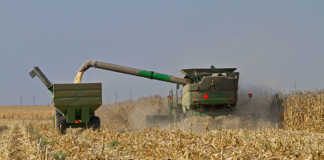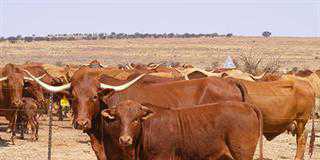
The area surrounding Groeneweide Park in George, in the southern Cape, was recently placed under quarantine following an outbreak of African swine fever that led to the death of 45 pigs, according to the Western Cape Ministry of Agriculture.
This is the fourth outbreak of the disease on the Garden Route area since 2022, with previous outbreaks occurring in KwaNonqaba and Mossel Bay, which were both resolved, and in Thembalethu in 2022, which remains a concern.
The World Organisation for Animal Health describes African swine fever as a highly contagious viral disease of domestic and wild pigs, with a mortality rate of up to 100%. The disease does not affect humans or any other species of animals.
Read Swine flu or swine fever? Know the difference!
The sudden death of pigs, with few other symptoms, are usually the first sign of an outbreak. Yet, in some cases, pigs might exhibit breathing difficulties, redness of skin, especially on the chest, stomach, tail and behind the ears, hind leg weakness, listlessness, and a loss of appetite.
Occasionally, a pig might also have blood in its faeces or vomit. African swine fever is a notifiable disease, so farmers must notify the state veterinarian if they suspect an outbreak.
The disease can be spread directly through contact with sick animals, or indirectly by feeding on garbage containing infected meat. According to the World Organisation for Animal Health, the virus can remain infectious for three to six months in uncooked pork products.
The virus might also spread via infected premises, vehicles, implements and clothing. There is no vaccine or treatment available, so good biosecurity measures are the best way of protecting herds against the disease.
The Western Cape Ministry of Agriculture has therefore urged farmers in the George region not to remove any pigs or pig products from the affected area to prevent further spread of the disease.
Farmers in general have also been urged to dispose of carcasses safely, confine roaming pigs to prevent them from picking up and spreading the disease, and to follow good sanitisation practices to prevent the spread of infected clothing and equipment to pigs.
Any meat products should be thoroughly cooked before being fed to pigs, and farmers should be cautious when buying in new pigs to ensure these are free from the disease.
Dr Peter Evans, CEO of the South African Pork Producers’ Association, told Farmer’s Weekly that African swine fever was endemic to South Africa, and that outbreaks had occurred in all the provinces since the first outbreak in 2016.
Efforts of the pork industry to raise awareness on ways to prevent outbreaks seem to be paying off, with the number of outbreaks dropping from over 100 during 2021 to between 60 and 70 in 2022 and 2023, and averaging around six per month.
Evans added that the disease was primarily a problem on smallholder and informal farms, with no cases being reported on commercial farms since 2021.












